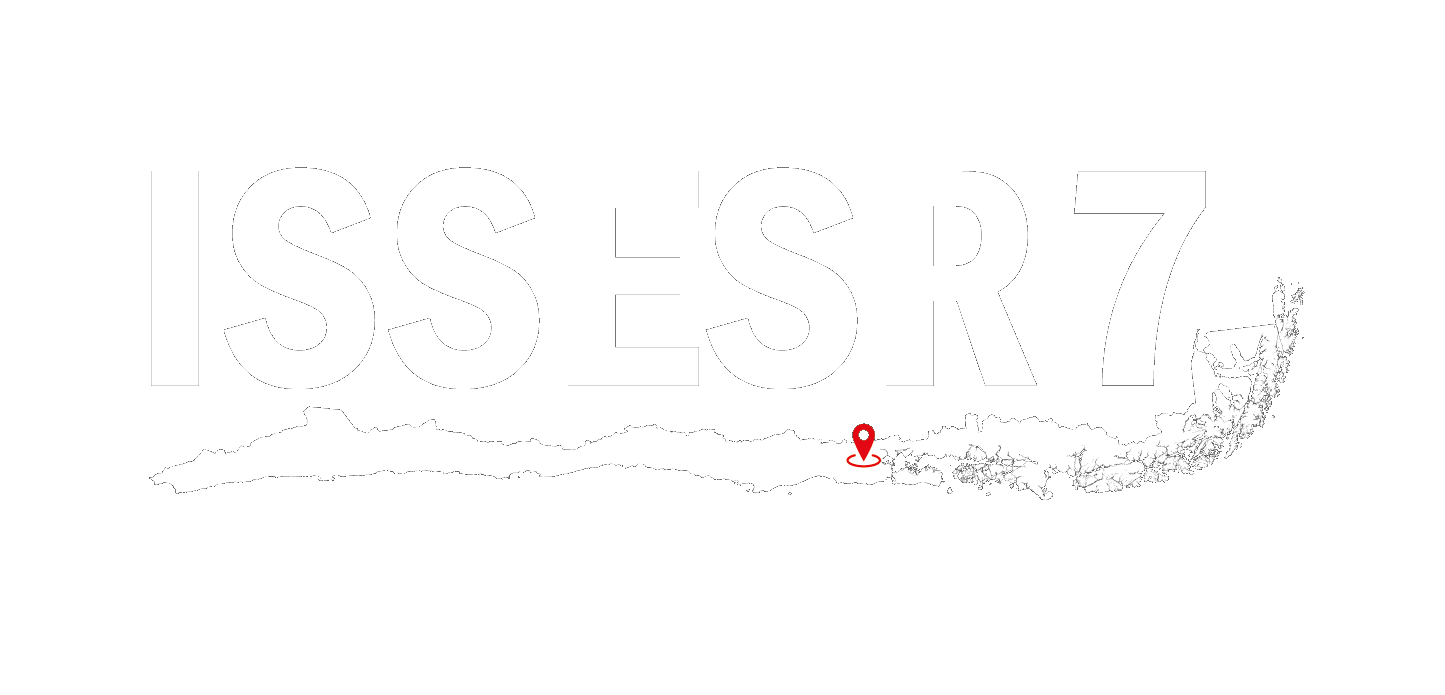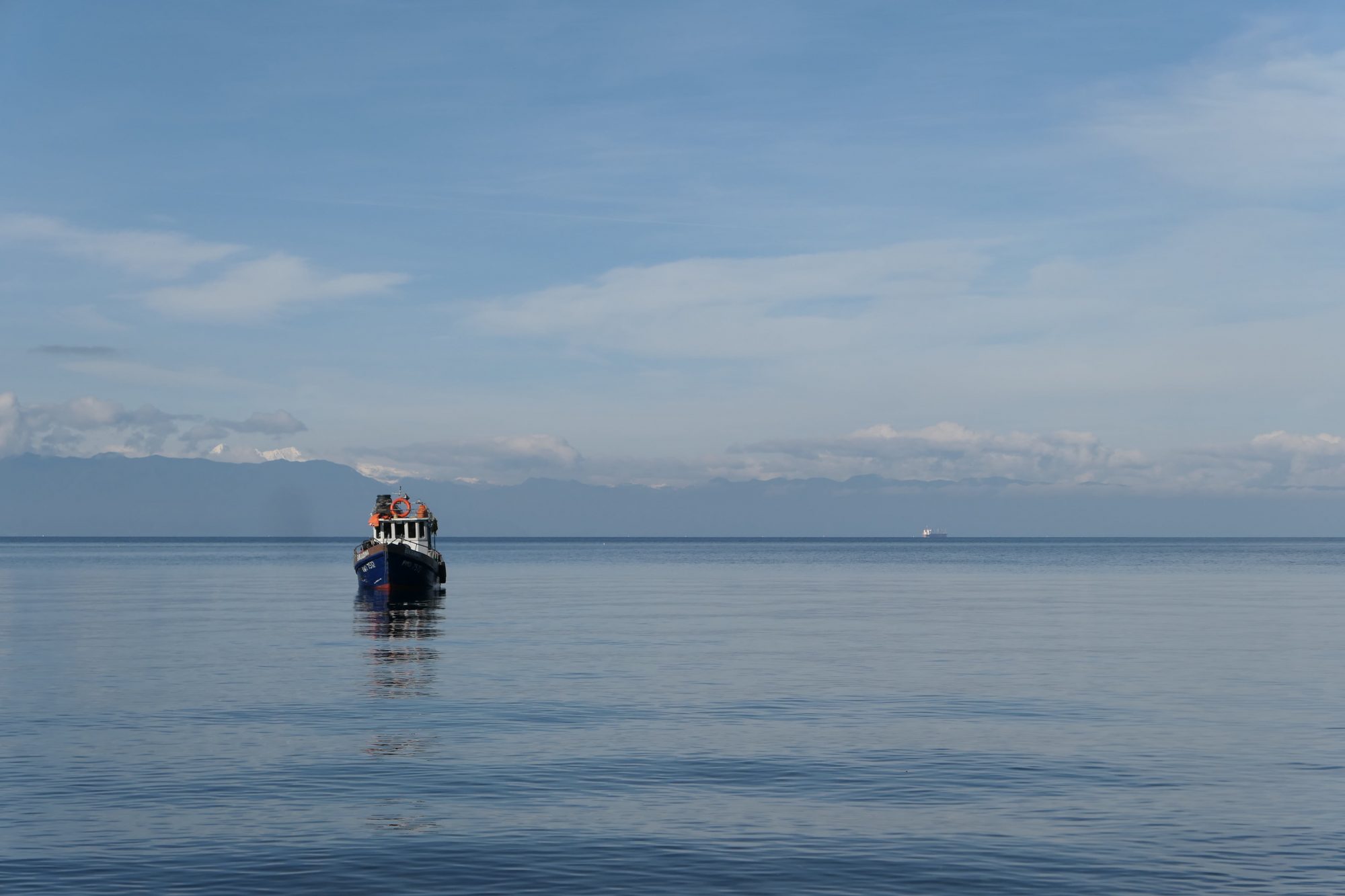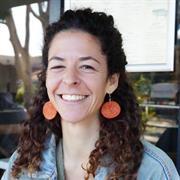
Dr. Clara Obregón
Reflections on community-based fisheries management across socio-economic divides: Fishers’ perceptions on sustainability and management in Australia and Vanuatu
Dr. Obregon is a fisheries scientist, focusing on the human dimensions of fisheries and fisheries sustainability. Her primary interests include working with fishing communities, government agencies and other stakeholders to provide a better understanding of small-scale fisheries governance and to support the sustainability and resilience of the communities depending on fisheries resources.
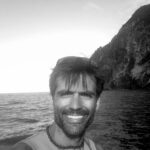
Dr. Luis Outeiro
Seven Ways for Falling: Reconstructing Four Decades of Stock Data for Key Commercial Species in Southern Chile
Dr. Outeiro is an interdisciplinary researcher on marine socio-ecological systems using spatial modelling and quantitative approaches. His main interests are fisheries and aquaculture, and among other he has used ecosystem based modelling for fisheries and aquaculture with a food web modelling approach to explain the past trajectories of fisheries and to infer ecosystem based carrying capacities for aquaculture. Beyond that, he has also worked with qualitative research using incorporating anthropological frameworks into his research, but also spatial distribution modelling of species with bayesian techniques. After his postdoc´s in Brazil, Portugal, Chile and Spain, he is now in charge of the interdisciplinary team of the IDEAL research centre of the Austral University of Chile.
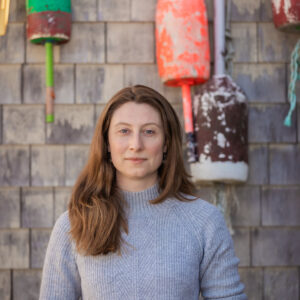
Dr. Hannah Harrison
Framing the Integration of Social and Human Dimensions in Conservation Hatcheries and Stocking Program Management
Dr. Hannah Harrison is a human ecologist and works as an assistant professor in the Marine Affairs Program at Dalhousie University. Her work is highly inter- and transdisciplinary and focuses on the human dimensions of conservation and access, particularly within salmonid fisheries. She is particularly interested in how aquaculture-aided conservation uses contested technologies to pursue various ecological and social objectives, and her work has focused on better understanding the social aspects of hatcheries and stocking programs and expanding our understanding of the stocking ‘debate’ to include both social and ecological dimensions. Dr. Harrison was raised in a commercial salmon fishing family in Homer, Alaska and now lives in Halifax, Nova Scotia.
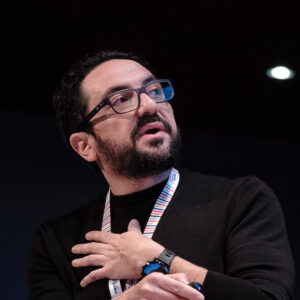
Dr. Cristian Gallardo-Escárate
The Beauty of Interactions: The Hologenome in Marine Organisms and its Potential Use in Restorative Aquaculture
Cristian Gallardo-Escárate is a Professor at the Department of Oceanography, University of Concepción, an Associate Investigator at the Center for Oceanographic Research COPAS COASTAL, and the Deputy Director of the Interdisciplinary Center for Aquaculture Research (INCAR).
Dr. Gallardo-Escárate has conducted extensive research on marine genomics, which involves the study of the genetic information of marine organisms. He has applied genomic techniques to investigate a wide range of topics related to marine biology, including the genomics of shellfish, marine bacteria, and parasites such as sea lice. One of his research's main focuses has been using genomics to improve sustainable aquaculture practices. For example, he has investigated the genomic basis of traits such as growth rate and disease resistance in farmed salmon and other shellfish species. Dr. Gallardo-Escárate has also used genomics to study the impacts of environmental stressors on marine organisms using bivalve models. In one study, he and his team investigated the effects of hypoxia and ocean acidification on mussels' transcriptome. They found that specific genes involved in shell formation and energy metabolism were significantly affected by low levels of oxygen and ocean acidification, which could have implications for the survival and growth of these organisms. In another study, his research team identified the repertoire of ncRNAs in invertebrate models using a combination of bioinformatic and experimental approaches. They also found that some of these ncRNAs were differentially expressed in response to chemical treatments, suggesting that they may be involved in developing drug resistance. His publication list includes 200 articles since 2005, in which functional genomics based on sequencing technology has been one of the main topics explored. He has established strong scientific and educational collaborations with colleagues in Spain, Italy, USA, and UK.
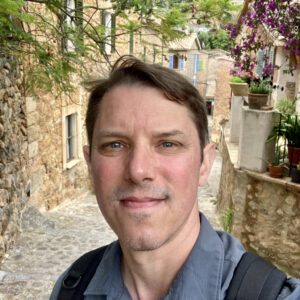
Dr. Seth White
Dr. Seth White is an Associate Professor in the Department of Fisheries, Wildlife, and Conservation Sciences, Oregon State University, and Director of the Oregon Hatchery Research Center. His research group focuses on fish behavior from a landscape ecology context and on understanding the risks and benefits of hatcheries in supporting conservation programs and viable fisheries for harvest. He currently serves as an invited member of the International Union for Conservation of Nature (IUCN) and was previously a Senior Fisheries Scientist at Columbia River Inter-Tribal Fish Commission where he established and continues to foster relationships with tribal fishery programs. He has been a Conservation Science Fellow at the Wilburforce Foundation and COMPASS and a Fulbright Fellow to Czech Republic. He is an enthusiastic angler and supports sustainable recreational, commercial, and tribal fisheries.

Dr. Zhongxin Wu
Evaluating artificial reef use and sea ranching systems in China and assessment of future directions: a literature review and meta-analyses
Dr. Zhongxin Wu, is an Associate Professor in the School of Fisheries and Life Science at Dalian Ocean University, Dalian, Liaoning Province P.R. China, and serves as the Deputy Secretary General of the Marine Ranching Sub-society of the Chinese Society of Fisheries. His research interests include fish ecology, food webs, fishery resource assessment and management and ecosystem modelling. Since the start of his postgraduate studies in 2009, he has been focused on evaluating the ecological effectiveness of marine ranching practices in northern China. He has investigated and evaluated the influence of artificial reefs and stock enhancement on the structure and function of marine ecosystems through employing multidisciplinary methods including biological community structure analysis, stomach contents, stable isotopes, as well as qualitative and quantitative ecosystem modelling. He also has provided technical services for consultancies on marine ranching design and construction. He has led research projects including those for the National Natural Science Foundation, National Key Research and Development Program, and the Liaoning Province Natural Science Foundation, and has published more than 50 academic papers.
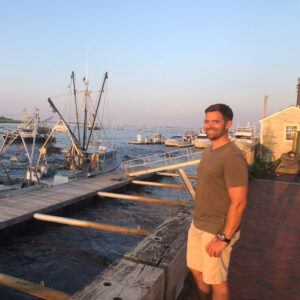
Dr. Ed Camp
Ed Camp is an Associate Professor of Fisheries and Aquaculture Governance at the University of Florida, in Gainesville, Florida, USA. He primarily uses quantitative approaches to understand the effects of different management decisions and strategies on socioecological systems. Ed has developed quantitative approaches for modeling stock enhancement of recreational fisheries for 10 years, and used these models to explore how stocking should (and shouldn’t) be expected to benefit populations and fisheries. His recent work has focused on assessing how traditional stock enhancement may be combined with habitat restoration, aquaculture, and traditional harvest control rules to rebuild Eastern oyster populations. Ed lives in Gainesville with his partner and daughter, and likes to garden and recreationally fish when he is able to.
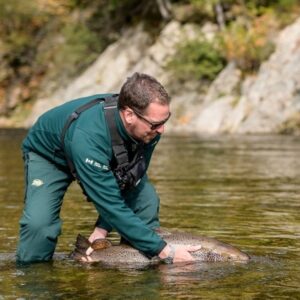
Corey Clarke
As the Manager of Resource Conservation, Corey is responsible for programs to conserve and restore ecological integrity for Parks Canada in Fundy National Park. He has been working with the Parks Canada on endangered salmon conservation and restoration for over 20 years. Following nearly a decade of near-zero adult salmon returns to rivers in Fundy National Park under contemporary wild salmon population recovery methods, Corey developed a partnership with the Aquaculture sector to rear wild-origin adult Atlantic salmon to stock back to National Park Rivers. This unique collaboration has grown over a decade and resulted in significant improvements in abondance of juvenile and returning adult salmon in National Park rivers and those operated by local Indigenous partners. Corey assists other National Parks and jurisdictions in adapting elements of this collaboration for their own benefits. His conservation interests focus on future ecosystem states: understanding what conditions and population states are most responsive to conservation interventions (when and where to act); supporting Indigenous perspective-based conservation actions, and; valuing assisted-functioning ecosystems for ecological, social and cultural health.

Dr. Carlos Montenegro
Current State of Chilean fisheries
Carlos Montenegro Silva. Doctor of Sciences, Statistical mention from the University of Sao Paulo, Brazil, Master in Statistics from the University of Valparaíso, Chile, with vast experience in advanced statistical modeling, complex sampling designs, ecosystem modeling, direct assessments of fishery resources, integrated stock assessment and fisheries monitoring. He has had experience in projects with international entities such as CSIRO, EDF, TNC and WCS. He has also executed projects oriented towards ecosystem modeling with grants from the Walton Family Foundation. In addition, he is a member of TNC's FishPath Advisory Group. He currently serves as head of the Fisheries Research Division of IFOP-Chile.
